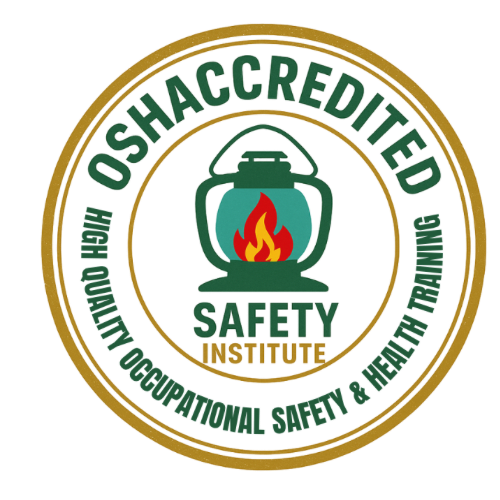Atlantic Hurricane Season 2025: Online Safety Courses & Emergency Preparedness Tips
Atlantic Hurricane Season 2025: Online Safety Courses & Emergency Preparedness Tips
The Atlantic hurricane season officially begins on June 1st and runs through November 30th, and each year it brings with it the potential for severe weather that can disrupt lives, damage property, and strain emergency response systems. As we approach the 2025 season, preparation is more important than ever. Whether you live along the Gulf Coast, the Eastern Seaboard, or even inland, understanding how to prepare can significantly reduce your risk.
This blog will walk you through the key elements of preparing for the 2025 Atlantic hurricane season, including the critical role played by the National Oceanic and Atmospheric Administration (NOAA), and how online safety training and awareness safety courses can help individuals, families, and organizations stay ready.
The Role of NOAA in Hurricane Forecasting and Preparedness
NOAA is the backbone of the U.S. government’s efforts to monitor, forecast, and communicate information about hurricanes. Through its National Hurricane Center (NHC) and National Weather Service (NWS), NOAA provides accurate, real-time updates on storm development, projected paths, and intensity. In addition, NOAA’s long-range seasonal outlooks offer insights into how active the hurricane season might be, based on sea surface temperatures, wind patterns, and other climatic factors.
In 2025, NOAA is expected to continue leveraging advanced satellite systems, ocean buoys, and aircraft reconnaissance missions (commonly known as “hurricane hunters”) to track storm data. The information gathered by NOAA is not just valuable for meteorologists, it is vital for emergency managers, first responders, businesses, and the-general public.
Staying informed through NOAA’s alerts and bulletins is one of the most important steps in hurricane preparedness. But being informed is only part of the solution—being trained and equipped to respond is what truly makes the difference.
National Hurricane Center Products and Services Update for 2025 Hurricane Season
https://www.nhc.noaa.gov/pdf/NHC_New_Products_Updates_2025.pdf
Why Hurricane Preparedness Matters More Than Ever
Recent years have shown that hurricanes are becoming more frequent, more intense, and more costly. Hurricanes like Ida (2021), Ian (2022), and Idalia (2023) have left lasting impacts on communities from Florida to the Carolinas. As climate patterns continue to shift, forecasters anticipate that the 2025 season could also see heightened storm activity.
The risks are not only coastal. Inland flooding, power outages, tornadoes, and storm surge can all create dangerous conditions hundreds of miles from where a storm makes landfall. Therefore, hurricane preparedness is no longer just a regional concern, it’s a national priority.
Researchers Release 2025 Hurricane Forecast
https://www.wkbn.com/weather/researchers-releases-2025-hurricane-forecast/
The Power of Online Safety Training
Being ready for a hurricane goes beyond having batteries and bottled water. It’s about knowing how to respond safely and efficiently in a variety of emergency scenarios. This is where online safety training can play a transformative role.
Benefits of Online Safety Training:
- Accessibility: Online courses can be taken from anywhere, making them ideal for individuals and businesses spread across different regions.
- Comprehensive Curriculum: Topics include first aid, evacuation planning, flood preparedness, generator safety, and post-storm recovery.
- Tailored Learning: Many programs are industry-specific, addressing the needs of schools, healthcare facilities, construction sites, and more.
- Certification: Many online courses offer certificates of completion that validate participants’ readiness and understanding.
Safety courses such as “Hurricane Preparedness for Employees”, “Emergency Response Planning”, and “Flood Safety Awareness” are widely available through online safety training platforms and often meet OSHA or FEMA recommendations. Businesses, especially, can benefit by integrating safety training into their annual preparedness protocols, ensuring their teams are educated and ready.
Creating a Hurricane Plan: Steps for Individuals and Organizations
Whether you’re preparing as a homeowner, a school administrator, or a small business owner, a detailed plan is essential. Here’s a breakdown of key components:
- Stay Informed
- Subscribe to NOAA weather alerts and follow trusted sources on social media.
- Use weather apps that feature real-time storm tracking.
- Develop a Communication Strategy
- Ensure all family members or team members know how to contact each other.
- Identify out-of-area emergency contacts.
- Know Your Evacuation Zone
- Familiarize yourself with local evacuation routes.
- Participating in online evacuation drills or simulations-where available.
- Stock Emergency Supplies
- Include essentials such as food, water, medication, flashlights, and important documents.
- Don’t forget masks, sanitizers, and other health-related supplies in case shelters are crowded.
- Practice Safety Drills
- Use online safety training platforms to simulate emergency scenarios.
- Reinforce learning with quizzes and interactive content.
- Secure Property and Equipment
- Trim trees, secure outdoor furniture, and check storm shutters.
- Businesses should safeguard critical data and equipment, often guided by business continuity training modules.
Online Safety Training for Specific Sectors
Some sectors face unique risks and responsibilities during hurricane season. Online safety training courses are now specialized enough to meet those needs:
- Healthcare: Safety training for evacuation of patients, backup power for medical equipment, and infection control during emergencies.
- Education: Safety courses for teachers and staff on sheltering students, reunification plans, and building lockdowns.
- Construction: Safety training for workers on active sites, proper securing of materials, and post-storm inspection protocols.
- Hospitality: Guest evacuation, continuity of operations, and customer service in crisis scenarios.
Such safety courses not only prepare personnel but also help institutions meet compliance standards and reduce liability.
Being Weather Ready
https://ahca.myflorida.com/content/download/19882/file/Hurricane_1_Postcard.pdf
Emergency Information
https://www.naplesgov.com/firerescue/page/emergency-information
Post-Hurricane Recovery: Training for the Aftermath
Surviving the storm is only part of the challenge. The recovery phase is where many hidden dangers emerge—contaminated water, downed power lines, carbon monoxide from generators, and mental health strain. Online safety training can help people understand safe cleanup practices, psychological first aid, and resource access through FEMA and local agencies. Additionally, courses on business continuity planning help organizations resume operations quickly and safely, minimizing economic losses.
Final Thoughts: Awareness Is the First Line of Defense
The 2025 Atlantic hurricane season will undoubtedly bring its own set of challenges. But with preparation, safety training, and timely information from NOAA, individuals and communities can face those challenges with confidence. Online safety training and preparedness safety courses are more than just educational tools—they are life-saving resources that can turn knowledge into action. Whether you’re an individual looking to protect your family or a business responsible for dozens of employees, taking the time to train now can make all the difference later.
Author: Dr. O’Neil G. Blake, Chief Executive Officer (CEO) of OSHAccredited Safety Institute
MS., MBA., MSc., BSc, CSP., ASP., CSHM., CSMP., MRSA.
Date: 04-28-2025










